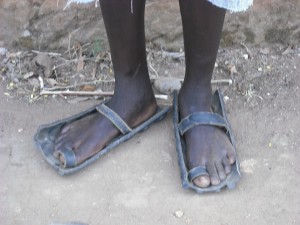
The Okebu form one of the seven ethnic groups which in habit the northwestern section of Uganda. They live between the Alur, the Lendu and the Lugbara on the highlands in the extreme northwest of Uganda.
Origins
Okebu traditions insist that there are of Sudanic origin and they were the second to migrate from the north and to cross the Nile following the Lendu and, they in turn, were followed by the Madi.
They inhabit and cultivate on both sides of Uganda-Zaire border in the region between Logiri and Kano. A quarter of their total population lives in Uganda. The Alur call them the Okebu but the Lugbara call them the Ndo. Their language is significantly different from that of the Lugbara but some anthropologists prefer to group them with the Lugbara in the Madi-Moro group.
Economy
Principally, the Okebu were mixed agriculturalists. They grew a variety of crops and also kept some cows, goats and sheep. In the area of art, they had a reputation as outstanding iron wokers.During famines, they migrated to other areas and they were welcomed, protected and valued because of their skills. Even today, one can trace among the Alur, the Kakwa, the Lugbara and the Maid some iron-workers who are Okebu connections.
Legend
The Metu have a legend to explain their monopoly of the art of ironworking. It says that originally, all the threw- the Okebu, the Lendu and the Madi- shared the art of iron working but the Lendu and the Madi lost tier skills at a beer party.
The story goes that when the three groups were in the middle of the smelting process, the industrious Okebu remained to finish off their work before joining the others in taking beer.
This precautionary measure enabled the Okebu to avoid the accident which befell the Lendu and the Madi when their unattended-to furnace caught fire and their skin bellows destroyed while they were drinking beer.
The Okebu were very proud of their art of iron making. Most of them doubled the ability of others, be the Lugbara or even the Europeans. Their art of iron working was however destroyed by colonialism. The colonizers insisted on importing iron implements from Europe and discouraged the traditional Okebu iron-workers. This has greatly undermined the traditional role of the Okebu smiths who are still active in the area between Arua and Godi. They make small weeding hoes, slashers and knives for sale in their local markets. In zani region of Zaire, the Okebu continued t practice their craft ironworking until 1950 when it was also outlawed by the Belgian colonial government.

 Posted in
Posted in 

